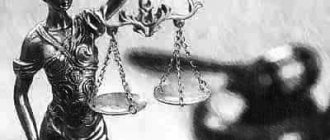The procedure for referral to medical examination for psychiatric diseases
Citizens with the described ailments undergo a standard step-by-step examination, that is, the procedure is the same as for other patients (sometimes with differences). In general, an applicant for the disability group will have to:
— collect a package of required documents;
— submit them to the ITU Bureau along with the application;
— undergo the necessary examinations, tests, etc.;
— wait for the verdict of the medical board.
Basically, the patient must attend the ITU in person, and only in exceptional cases is the group given in absentia.
Documents required for registration of disability
The package of documents for passing the examination usually includes:
— passport (and copy);
- outpatient card;
— application and referral for medical examination (the latter is issued by a doctor);
— certificate of income for 6 months (for employed people);
— a copy of the work book certified by the personnel officer;
- characteristics from the place of study or work.
Important
! If a guardian is caring for the patient, you will need his documents and a power of attorney stating that he can act on behalf of the ward.
Terms of consideration
After the decision is made, the citizen will be notified of the results of the examination immediately (on the spot), if present in person. In case of refusal to give a group, the commission members must explain the reason. If the decision is positive, the patient receives a certificate and an IPR. This program is compiled individually and has its own characteristics, which are discussed below.
General information on this issue
The decision to recognize a citizen's incapacity is made by the court . For such a decision, it is necessary to prove that the citizen has 2 negative indicators:
- Medical – the presence of a disease (mental) or addiction (alcohol, drugs).
- Legal - the inability to realize the consequences of one’s actions or the inability to control one’s own actions.
An elderly person can be declared incompetent by a court only if he has a mental disorder . Advanced age is not a sufficient reason for this.
The basis for starting a trial for recognition of limited or complete incapacity due to mental illness or addiction is a statement:
- Family members, close relatives.
- Guardianship and trusteeship authority.
- A specialized medical institution.
Based on the application, the court orders a forensic psychiatric examination .
Incapacity can be revoked:
- Upon reaching adulthood.
- When a minor enters into legal marriage . In this case, he is considered fully capable. In the event of divorce, legal capacity is retained.
- Based on the verdict of the court making the decision, guided by relevant expert opinions.
Individual rehabilitation program for a disabled person
The IPR is compiled by ITU specialists according to the needs of the person being examined. The document contains information about methods and programs of social support. For example, the program may include data regarding assistance in various areas:
- legal services;
— hygiene supplies;
— psychological consultations;
- accompanying social worker;
— technical means of rehabilitation.
Important
! These types of assistance are provided to the recipient at the place of registration.
Consequences of recognizing a citizen as incapacitated
- He completely loses his civil independence . This means that he loses the right to independently: choose his place of residence; dispose of your property; move freely; manage your own finances, etc.
- A guardian appears in his life . It can be either an individual or an organization. He is appointed by the guardianship and trusteeship authorities on the basis of a corresponding court decision. Most often, a person who is a relative of the person deprived of legal capacity is appointed as a guardian (but this is not a mandatory requirement). If a person is placed in any medical (hospital) or social (boarding home, nursing home) institution for an unlimited time, then this organization will be his guardian. All civil transactions on behalf of an incapacitated person are carried out by his guardian.
- He loses the right to enter into legal marriage . If for any reason a marriage is concluded after a person is declared incompetent, then it is considered invalid and will be recognized as such by a court decision. If a person was married at the time of loss of legal capacity, then such marriage can be annulled on the basis of an application from his guardian.
- He does not have the right to take part in referendums and elections (as a candidate and as a voter) at all levels.
- If he makes a transaction (purchase and sale, payment for services, etc.), it may be declared invalid if any interested party appeals it in court. In this case, based on the court’s verdict, both parties must return what they received back. Based on the requirements of the guardian, the court may make a decision to recognize the transaction as valid if it is beneficial to his ward.
- The guardian or institution under whose care the person who has lost his legal capacity is must compensate for the damage caused to him , unless he is able to prove that it was not caused by his fault .
- Relevant social services must inform the guardian about the social services to which his ward is entitled. Medical organizations are also obliged to inform the guardian about the health status of the incapacitated person.
- The provision of required social services to him must occur with the consent of his guardian . In its absence, the decision on their provision must be made by the guardianship and trusteeship authorities.
- Placement in an inpatient medical (hospital) or social (boarding home, nursing home) type institution must occur solely with the consent of the person being placed . If it is not possible to obtain sufficiently informed consent from him, then he is placed in an appropriate institution on the basis of a court decision.
- He cannot personally, on the basis of his own motives, take part in the judicial consideration of civil cases. An exception is court hearings concerning issues of his legal capacity or restriction of freedom (placement in a medical or social institution).
Benefits and restrictions for people with mental illness
A mental anomaly and the corresponding status allow the owners of the group to count on financial support from the state and all sorts of preferences. In general, disabled people are provided with:
— free medicines and vouchers to a sanatorium;
— services of a social worker (if necessary);
- Opportunity to improve living conditions.
But in addition to the positive aspects, disability in itself and mental illness in particular implies certain restrictions. They should be taken into account if a disabled person takes out a mortgage, wants to become a guardian, etc.
Types of disability
Today, there are several types of incapacity:
- age-related incapacity;
Age-related incapacity occurs before the age of majority, namely the age of eighteen and in very old age, when, as a result of age-related changes, a person ceases to control his actions and loses his legal capacity. If in the first case, incapacity arises from the condition of being in a certain age category, then in the second case, the procedure for recognizing incapacity will be the same as in the case of a mental disorder or disease.
- incapacity due to mental disorder;
As the name suggests, it arises as a result of a citizen’s loss of the ability to adequately perceive reality and be responsible for their actions and deeds.
- partial incapacity;
This incapacity limits a number of rights and obligations of a citizen.
In what cases is disability removed?
The special status can most often be removed in the event of a positive result from treatment and restoration of important skills. If the condition really improves, the attending physician may recommend not to extend the group after the expiration of the period. It also happens that, against the background of improvements, the ITU experts themselves appoint another group (demote it).
Finally, members of the commission have the right to irrevocably deprive a person of privileges along with a disability if the patient has provided false information about his health, knowing this in advance. In this case, the group will definitely not be extended or established.
Varieties
- Age: Valid until adulthood . It occurs when you lose the ability to adequately respond to life situations and take care of yourself independently due to degenerative mental diseases that occur in old age.
- Due to the presence of certain mental illnesses .
- Limited – when only part of a person’s rights and obligations is subject to restrictions.
What benefits are provided for guardianship of an incapacitated person?
Often, caring for a mentally ill person does not allow a citizen to devote time to work.
In this case, he is entitled to an additional payment to the ward’s pension for guardianship. It should be completed at the Pension Fund (PF) branch. To do this, you must provide the following documents:
- Guardian personal statement.
- A certificate stating that this person does not receive pension payments.
- Certificate from the employment center about the absence of registration as a job seeker and corresponding payments.
- Copies of both ID cards.
- A copy of the OPP decision on the appointment of guardianship.
- Work records of both (if available).
Attention: the benefit amount is 1,200 rubles.
In addition, the guardian has the right to dispose of all income of the incapacitated person. These include:
- Disability pension (social or labor, depending on the circumstances).
- Monthly payment amount:
- package of social services:
- charges for using transport;
- reimbursement of expenses for medicines;
- Spa treatment.
Important: the guardian will have to independently take care of the assignment of payments, if the incapacitated person has not previously done so.
Other preferences
There are a number of benefits that apply to the guardian and the incapacitated citizen himself. Namely:
- In public transport, both people do not have to pay if they travel together.
- When calculating tax on vehicles (up to 150 hp), a 50% discount is given.
- When sending a statement of claim to a judicial authority with damage up to one million rubles. State duty is not withheld.
- Notary services for a guardian cost half the price.
- Benefits for utility bills are 50%.
- If necessary, this person may receive free legal services.
- Treatment, including sanatorium-resort treatment, is provided to the ward free of charge.
For reference: the benefits listed above are available to all disabled people of the first group, which include incapacitated persons.
However, in order to comply with the law, it is necessary to contact the medical and social examination authorities and receive the appropriate paper.
Important: for each year of caring for a disabled person of group 1, a citizen is awarded 1.8 pension points. This will allow you to claim pension benefits in the future.
Where are guardian benefits issued?
Providing preferences to disabled people of group 1 is carried out in accordance with the general procedure. Their appointment should be made to the appropriate authority. Namely:
- social protection authority;
- tax inspectorate (transport and property tax);
- court;
- legal department.
Attention: you can get benefits for utility services at the MFC or at the social services authorities.
In addition, you can contact utility services for their calculation. When contacting any of these organizations, you should have with you:
- passport;
- ITU certificate of disability of group 1;
- decision to appoint guardianship.







